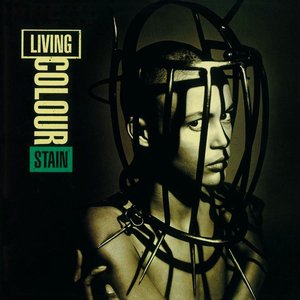Published on Mar 24, 2006
Although the 90s were a golden period for grunge
music, it was great for rock music in general. There is no doubt
that grunge records dwarfed everything else that was created during
the decade. But the parallel non-grunge alternative music scene
produced stunning rock albums that were as monumental in
influencing the 90s rock sound as grunge: Gentlemen (The Afghan
Whigs), Angel Dust (Faith No More), Bloodsugarsexmagik (Red Hot
Chilli Peppers), and Stain.
There was never any second thought on Living Colour’s
musical brilliance, and the band had been making superb rock albums
ever since they debuted with Vivid. But on Stain, the group shows a
completely new level of maturity. This is the hardest and the most
thought provoking of the group’s first three records.
Stain captures the genuine brute aggression that
grunge acts possessed and portrayed so effortlessly, and finds
Living Colour at its darkest and edgiest self. The band’s messages
of social consciousness on its previous two efforts were never as
in-your-face as they are on Stain, where the outcry is rasping,
acerbic, and stinging like never before.
On “Go Away,” the band’s recurring theme of Africa
comes up again, but this time the anger’s worse than ever, and the
song’s heavy with bitterness; the chorus “I see the starving
Africans on TV / I feel it has nothing to do with me / I sent my
twenty dollars to Live Aid / I’ve paid my guilty conscience to go
away,” gives an idea of the song’s rancor. The same goes with
“Ignorance Is Bliss” where the words are as caustic – “Living with
myself is hard enough / So I get away when things get rough /
Famine, strife, and thoughts of war / Matter less than the dress
she wore / Ignorance is bliss / Problems solved with just one
kiss,” and the furiousness is just as intense.
Living Colour records generally contain an odd love
song in between their messages of social outrage, just to lighten
things up a little bit with a theme that’s hard to resist even for
a band like this. Unlike the straightforward cuts of heartbreak on
its predecessors (notably “Broken Hearts” on Vivid and “Love Rears
Its Ugly Head” on Time’s Up), Stain, takes the “love” theme to
raunchier extent, with “Bi,” a track – as the name suggests – on
bisexuality that’s humorous and shamelessly real (“My lover told
me, well, that she’s bi / I wanted to scream, there were tears in
my eyes / She said baby, baby, don’t you cry /’Cause the one I am
with, you’ve been seeing on the side”), which has a perfect outro
with some cheesy hip-hop beats thrown in by guest producer Andre
Betts.
The random experimentation with hip-hop and Betts’
appearance resurface on “WTFF,” which is Stain’s answer to Time’s
Up’s “Ology,” a 2:15 piece of random guitars tossed into hardcore
hip-hop beats reminiscent of “Jump” by one-hit wonder Kris Kross,
which comes across as a nice change of pace towards the end of the
record.
The more eccentric second half of Stain features the only two
mellow cuts on this record, “Nothingness” and “Hemp.” Probably one
of Living Colour’s best tracks ever, “Nothingness,” a poignant song
about loss and death, is simple in contrast to the record’s
ubiquitous hard-edged sound, with no extravagant guitar-hooks or
solos, only beautifully laden synth-guitar whiffs accompanied with
bass and drums. “Hemp” is a moody poetic narration, also adorned
and made magical by the psychedelic synth-guitar giving a dramatic
edge to the strangely spoken words.
All of Living Colour’s records are nothing less than
exceptional, and so it is a hard task to compare one with any of
the others. But having said that, Stain was a part of one of the
most treasured periods of rock. Hence, it will always be a special
record in Living Colour’s catalog.
